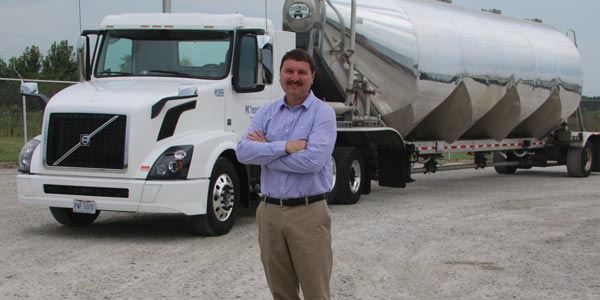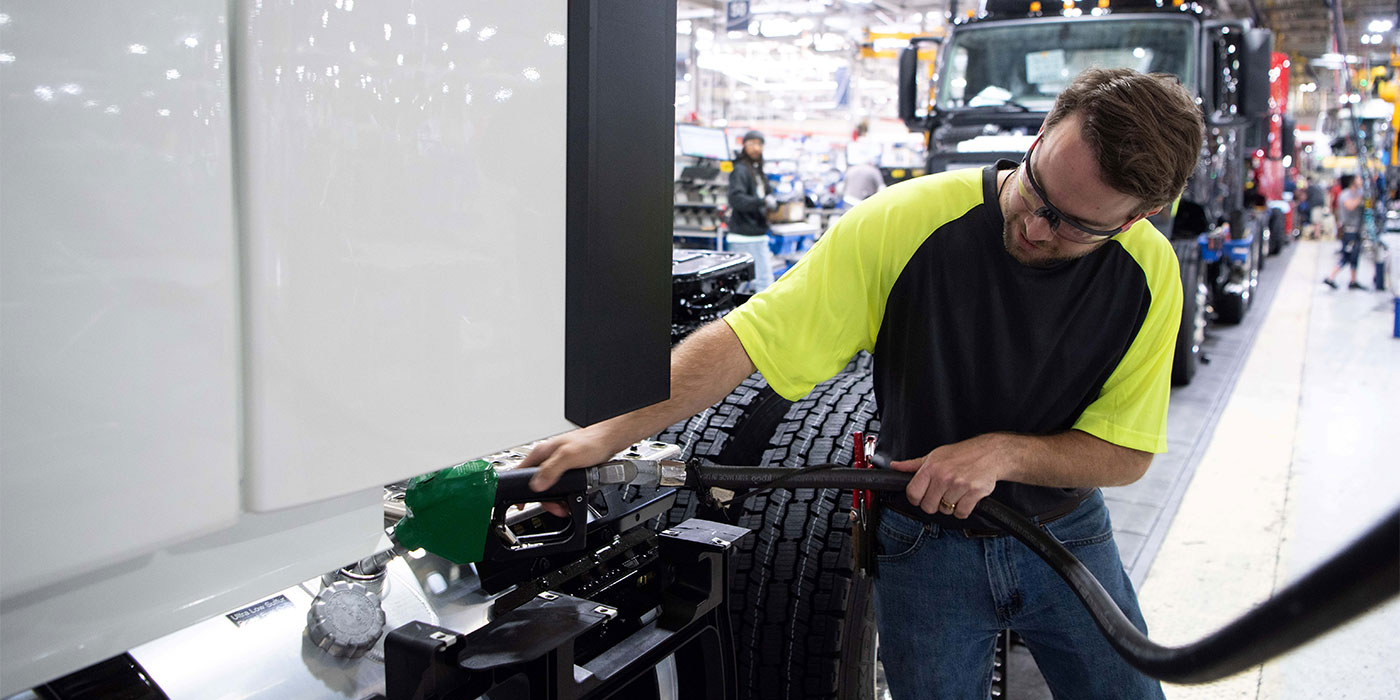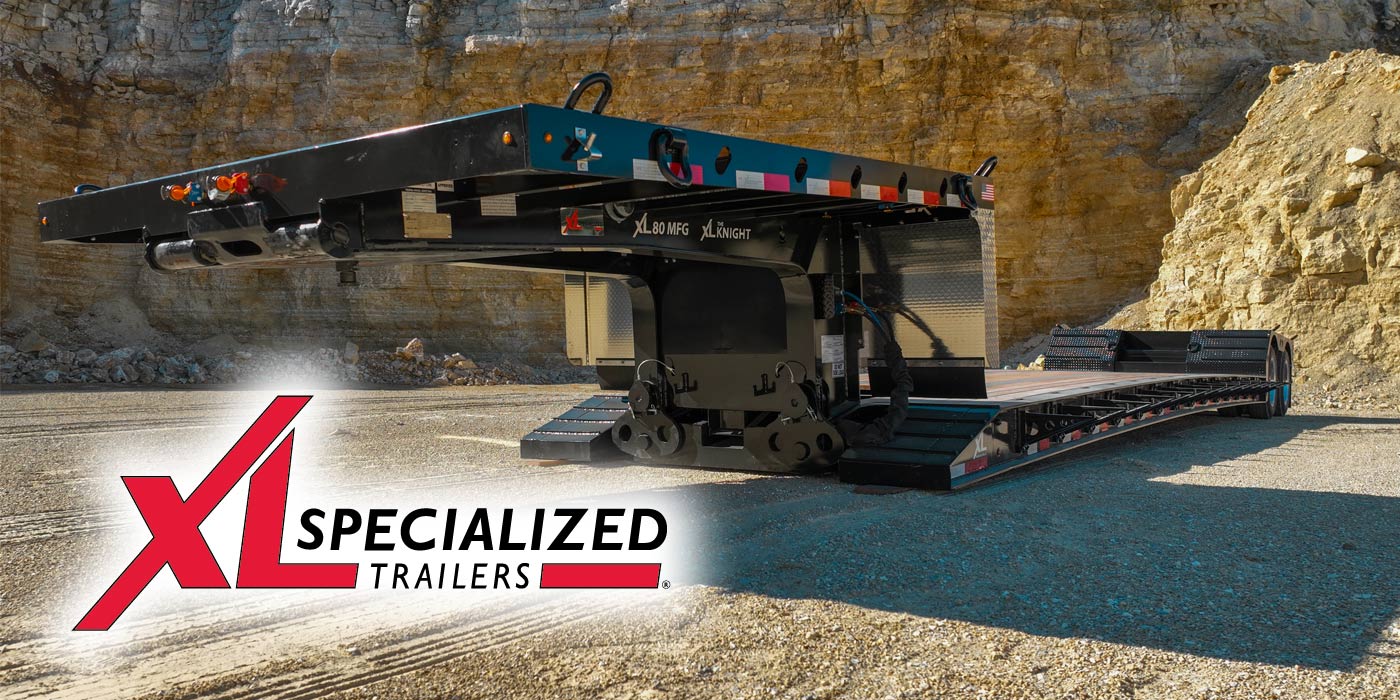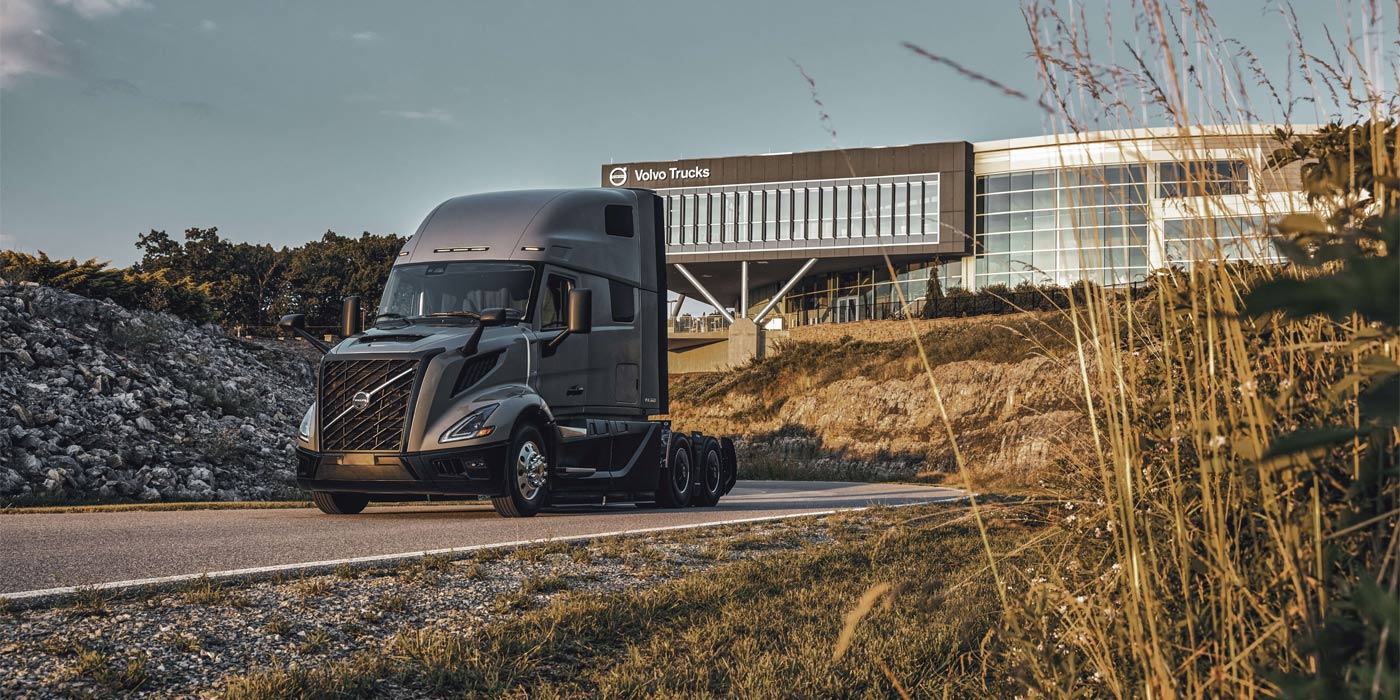To say that The Mennel Milling Co. is dynamic would be an understatement. The Fostoria, Ohio-based private fleet hauls raw materials and over 2,000 bulk and packaged finished products to and from the company’s five mills in Ohio, Michigan, Illinois and Virginia, which produce more than 200 different types of flour each day. Routes primarily cover the eastern half of the U.S., with some trucks making two to three regional runs per day and others handling longer hauls of 500 or more miles.
“We have a three-pronged fleet operation,” explains Jeremy Decker, the fleet’s transportation safety manager. “We use hopper trailers to bring wheat from grain elevators to flour mills and ‘midds’—the portion of a wheat berry that is commonly used for feed ingredients—to processing plants. For bulk deliveries to bakeries and mixing plants we utilize 1,550- and 2,000-cu. ft. pneumatic trailers. In addition, we have van trailers for deliveries of everything from 50-lb. bags to 1,600-lb. totes of packaged flour.”
The fleet at Mennel consists of 70 tractors—a mix of mostly Mack and Volvo models along with some Kenworths, Internationals and Peterbilts. Power units are primarily day cabs although there are a few sleeper models for longer hauls. Stevens, Polar, Tremcar and Vantage supply 1,550- to 2,000-cu. ft. pneumatic trailers that handle about two-thirds of the company’s loads. The balance of the trailer fleet is made up of hopper and van units.
“We’re always looking at all makes of tractors and trailers to keep abreast of what’s on the market and at new technologies that are available,” Decker relates. “Our loyalty to any manufacturer is based in large part on local relationships. For example, we tend to work with OEMs that have dealers who handle warranty claims and make training available for the 15 technicians at our two company shops.”
Realizing a return on investment
Through those connections, Decker notes, Mennel has continuously explored and implemented ideas for lowering the weight of its equipment without sacrificing durability. “If we can save 500 lbs. on two loads each day,” he explains, “we have to haul one less load each week. In that case, the investment in lighter-weight components is returned in mileage, and in fuel, maintenance and driver costs.
“Years ago,” Decker continues, “we started addressing vehicle weight to offset increases from new emissions systems. Our goal was to gross out at 80,000 lbs. with 1,550-cu. ft. pneumatic trailers filled with dense products, like bread flour, and 2,000-cu. ft. units full of lighter cake flour.”
Along with some lightweight tractor specs, including aluminum fifth wheels and engines that were lighter but didn’t compromise on power, Mennel began adding wide base single tires to tractor drive and pneumatic trailer axles to save weight. Recently, the company also started using Link Manufacturing lift axles on tractors to save weight, improve driveability and enhance traction when empty.
“We specified tag axles starting in 2013 and in 2017 started using lift axles in our pneumatic operations,” Decker adds. “Our food grade trailers return to our facilities empty after every load so in addition to saving weight, lift axles reduce drag and save fuel on half of our mileage with those units and lower tire wear as well.”
Proactive about safety
Mennel is just as proactive about using technology to improve safety. For example, since 2012 the fleet’s tractors have been equipped with air disc brakes, a practice that is now in place on its trailers as well. Since 2005 it has specified collision mitigation systems.
In addition, Mennel specs heated hood mirrors, forward and rear facing cameras and, in its last group of tractors, IMMI RollTek seats. The system senses an impending rollover, tightens the seat belt and moves the seat to its lowest level to increase survivable space, and deploys a side airbag to cushion the driver’s head and neck.
“While those things can add to the price of a vehicle, safety is always the right thing to do,” Decker says. ”We look at those systems and features as part of doing business. We may not be able to always measure an exact ROI, but we know there are benefits to these solutions.”
Mennel also works with its drivers to improve safety, but as Decker notes, its focus is on coaching rather than discipline.
“We realize that an infraction can be the result of a lack of understanding, so coaching tends to have a more positive result,” he says. “We’re also always looking for ways to provide a better working environment.
Facing unique challenges
With a highly dynamic operation, Mennel faces unique routing and dispatch challenges. For example, while some customers know exactly what they need two to three weeks in advance, others have delivery needs that can change daily.
“Dispatch and routing in our operation are like a jigsaw puzzle without a box top for guidance,” Decker says. “We originally had a system that was expensive, had modules we didn’t need or use but still paid for, and wasn’t flexible. Now we use the BOLT System fleet management program. It helps us tremendously because it’s far less complex, it’s tailored for our needs and it saves us time and money.”
Mennel also uses the BOLT system to manage activity-based pay for drivers. With information from its PeopleNet ELDs, the company is now able to pay drivers in segments. In addition to geofencing at mills, for example, the system allows for pay to be broken out per mile on longer trips, or it can apply a flat load rate. Loading activity and the time of day can also be part of the pay structure.
“For example, if a delivery is made after midnight on a Friday a multiplier can kick in to assign additional value,” Decker explains. “There are a lot of moving parts with our operation so we like how the BOLT System makes it easy for us, and eliminates extra paperwork and tracking. And our drivers like it too because everything is transparent, plus they save time because they no longer have to keep records manually.
“With the flexibility we have with this system, we can also document workflow for our customers, and we can bill shippers more efficiently for the services we provide,” Decker adds.
The ongoing adoption of advanced management systems and new vehicle technologies at Mennel Milling is standard procedure for the 133-year old company. Founded in 1886, the company that is now run by a fifth generation of the Mennel family has seen a lot change. Today, however, it remains successful because its willingness to change with the times has remained consistent.














